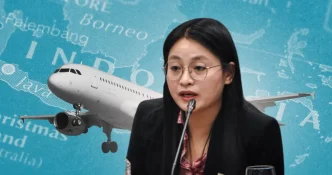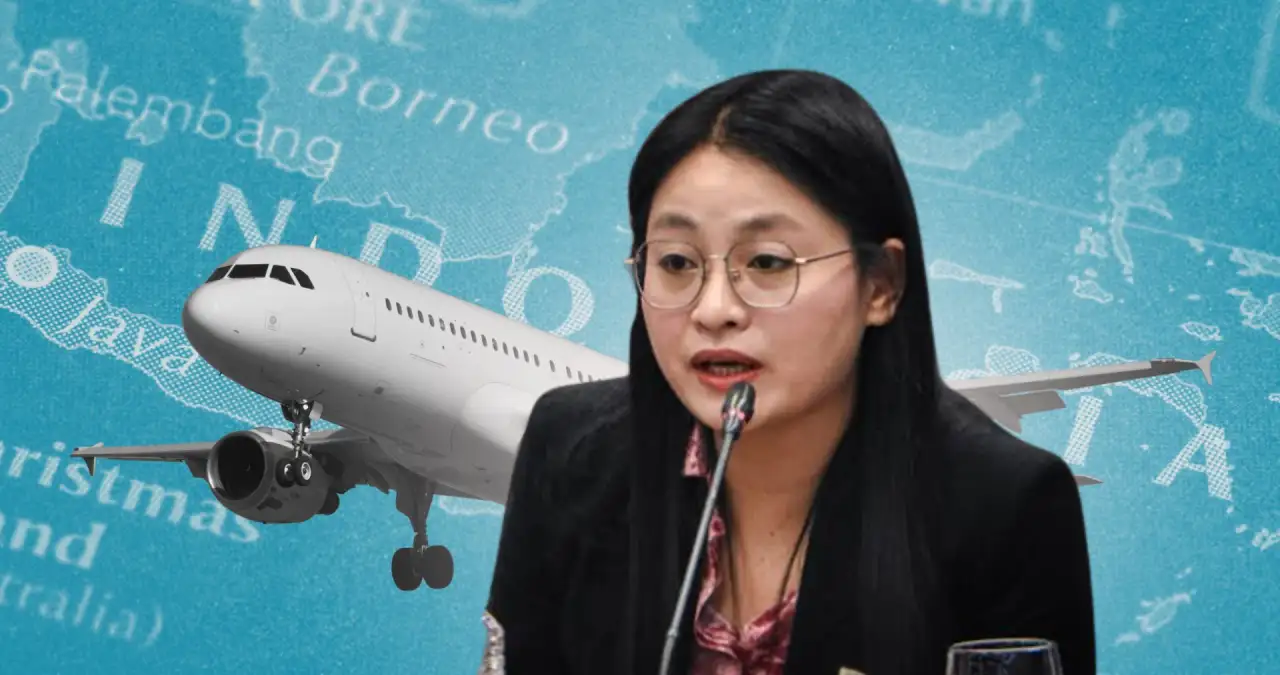In a landmark decision that has sent shockwaves through Philippine politics, a Manila court has ruled that former Bamban, Tarlac Mayor Alice Leal Guo is a Chinese national, disqualifying her from holding public office and declaring her a usurper of the mayoral position she held until her dismissal last year. The ruling, based on what the court described as the “infallible science of fingerprint examination,” has not only voided Guo’s 2022 election victory but also reignited debates over national security, citizenship fraud, and the controversial rise of Philippine offshore gaming operators (Pogos).
A Case of Dual Identity
The Manila Regional Trial Court Branch 34, presided over by Judge Liwliwa Hidalgo-Bucu, granted a quo warranto petition filed by the Office of the Solicitor General (OSG) on June 27, 2025, confirming that Guo, also known as Guo Hua Ping, is “undoubtedly a Chinese citizen.” The court’s 67-page decision detailed how Guo had circumvented Philippine law by posing as a Filipino to meet the citizenship requirements for public office, a situation it described as posing “a risk to national security, which is far more than real.”
Central to the court’s ruling was fingerprint evidence linking Guo to Guo Hua Ping, a Chinese national whose records date back to 2006. Dr. Alfredo Kahanding, chief of the National Bureau of Investigation’s dactyloscopy division, testified that fingerprints from Guo’s 2021 biometrics and those taken after her arrest in Indonesia in September 2024 matched a 2006 alien fingerprint card under the name Guo Hua Ping. The court gave “full weight and credence” to Kahanding’s findings, noting identical ridge characteristics in multiple samples.
Further complicating Guo’s claim to Filipino citizenship, the court highlighted irregularities in her personal records. Her birth was registered only in 2005, at the age of 19, and no records of her purported parents, Angelito Guo and Amelia Leal, could be found in the Philippine Statistics Authority (PSA) database. The court emphasized that neither a birth certificate nor a passport constitutes conclusive proof of citizenship, ultimately ruling that Guo’s disqualification applied retroactively to the time she filed her candidacy for mayor in 2022.
Political Fallout and National Security Implications
The implications of the court’s decision extend far beyond Guo’s personal fate. Her case has exposed systemic vulnerabilities in the Philippines’ vetting processes for public officials, raising questions about how a foreign national could ascend to a position of local governance. Senator Sherwin Gatchalian, who has been vocal about Guo’s case since suspicions of her dual identity emerged in mid-2024, welcomed the ruling. “Our government should not be used again by foreigners for their personal interest” he said on June 29, 2025, urging authorities to pursue not only Guo but also those who may have aided her deception.
Guo’s alleged ties to Pogos—online gambling operations that have proliferated in the Philippines over the past decade—have added another layer of complexity to the scandal. In May 2024, a Senate investigation revealed that Guo was an incorporator of Zun Yuan Technology Inc., a Pogo in Bamban linked to allegations of human trafficking and illegal detention. The court acknowledged in its ruling the “systemic irregularities” surrounding the rise of Pogos during the previous administration, though it stopped short of attributing direct responsibility to specific officials.
Speculation about Guo’s background has also fueled public unease, particularly following a September 2024 Al Jazeera documentary featuring She Zhijiang, a jailed Chinese businessman who claimed to possess a dossier identifying Guo as a Chinese spy. While the court did not address these unverified claims, the documentary’s assertions—coupled with Guo’s confirmed Chinese nationality—have intensified concerns about foreign influence in Philippine politics. If such allegations were to be substantiated, they could have profound implications for bilateral relations with China, especially amid ongoing tensions in the West Philippine Sea.
Legal and Procedural Precedents
The Guo case marks a historic moment in Philippine jurisprudence, as the court noted it was “probably the first time” fingerprint evidence was used to establish a person’s identity in a quo warranto proceeding. Citing a 1933 Supreme Court case, People v. Medina, which accepted fingerprint evidence based on fewer points of agreement than those found in Guo’s case, the court underscored the reliability of such forensic methods. This ruling may set a precedent for future cases involving identity disputes or citizenship fraud, providing a legal framework for the use of biometric data in determining eligibility for public office.
Although Guo’s term as mayor ended on June 30, 2025, and she had already been dismissed by the Office of the Ombudsman in August 2024, the court stressed that the case was not moot. It argued that the novel legal issues at play—particularly the intersection of citizenship and national security—required a definitive resolution to guide future judicial and public responses. The decision thus serves as a cautionary tale for electoral bodies like the Commission on Elections, which may need to strengthen candidate verification processes to prevent similar incidents.
Public Reaction and Broader Concerns
Guo’s case has captivated the Filipino public since questions about her nationality first surfaced during Senate hearings in 2024. Senator Risa Hontiveros, who initially raised doubts about Guo’s background due to inconsistencies in her personal history and the absence of hospital birth records, has since become a prominent voice in the push for accountability. Guo’s failure to attend subsequent hearings, followed by her flight to Malaysia and Indonesia with her siblings, only deepened public suspicion. Her arrest in Indonesia on September 6, 2024, and subsequent repatriation marked a turning point, culminating in the recent court ruling.
Beyond the specifics of Guo’s situation, her story has sparked broader societal debates. Filipino-Chinese communities, often referred to as Tsinoys, have expressed concern that the case could fuel prejudice, especially against the backdrop of geopolitical disputes with China. Community leaders have called for nuanced discussions that separate individual wrongdoing from collective stereotyping, a sentiment echoed in local media outlets following the court’s decision.
Ongoing Investigations and Future Challenges
Guo, currently detained at Pasig City Jail, faces multiple charges, including 62 counts of money laundering and qualified trafficking in persons. Legal experts suggest that the court’s ruling on her citizenship could strengthen the prosecution’s case, particularly on charges related to fraud and misrepresentation. However, the focus now shifts to whether authorities will investigate potential accomplices who may have facilitated Guo’s rise to power. The OSG presented 11 witnesses during the quo warranto proceedings, including representatives from various government agencies, indicating that the web of involvement may extend beyond Guo herself.
The controversy surrounding Pogos remains unresolved, with many Filipinos questioning why such operations were allowed to flourish despite known risks. While successive administrations have taken steps to curb Pogo activities—President Ferdinand Marcos Jr. announced a ban on Pogos in July 2024—the economic impact of these measures, including job losses for Filipino workers in the sector, continues to be debated. Guo’s case may serve as a catalyst for more stringent regulations, though balancing economic considerations with security imperatives will be a delicate task for policymakers.
A Test for Philippine Governance
As the dust settles on the court’s ruling, the saga of Alice Guo—or Guo Hua Ping—stands as a stark reminder of the vulnerabilities in the Philippines’ political and legal systems. Her ability to assume a public role under a false identity has exposed gaps in oversight that could be exploited by others, whether for personal gain or more sinister purposes. The government now faces the dual challenge of addressing these structural weaknesses while ensuring that justice is served in Guo’s ongoing criminal cases.
For many Filipinos, the case is more than a legal matter; it is a question of national integrity. As investigations continue and public discourse evolves, the hope is that lessons learned from this unprecedented scandal will lead to reforms that safeguard the country’s democratic institutions. Whether those reforms will materialize, and how they will reshape trust in governance, remains an open question in a nation grappling with complex internal and external pressures.
















